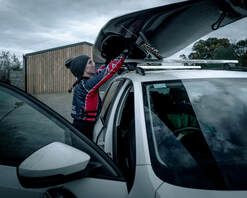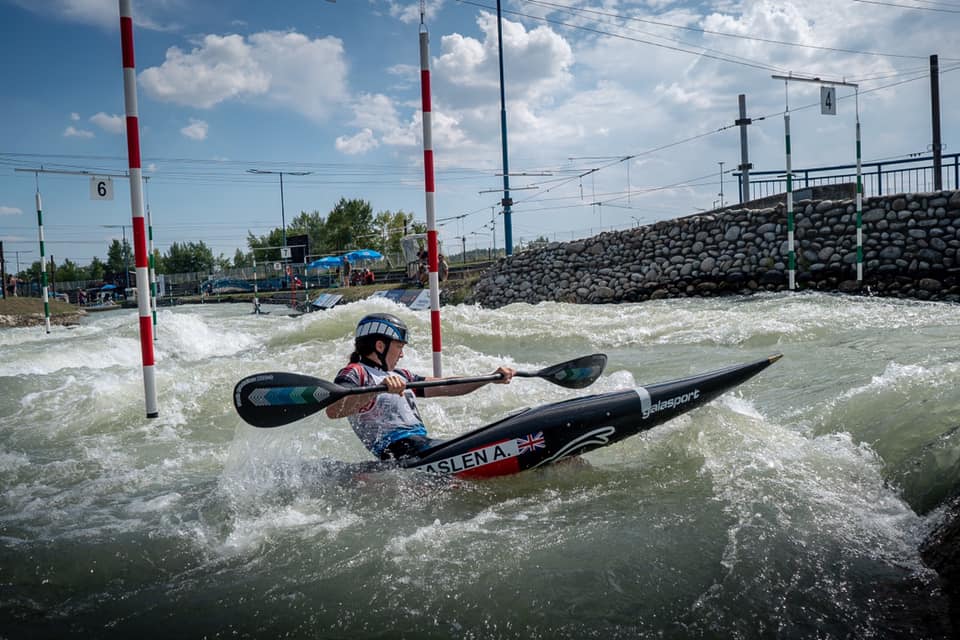
Slalom is one of the most team-orientated environments I've ever been in, with athletes and coaches putting themselves without question at a disadvantage to support a teammate. Thankfully, it rejects the principle of "selfish" that I've heard various coaches preach to me before. I have a few issues with this principle and since it's my blog, I’m going to go right ahead and dismantle them. I want to start with the tradition of "selfish athlete" to begin a discussion about women's roles.
The first item I’d like to discuss in relation to athlete selfishness, is: what is the point in sport?
I’ve said on my blog a few times that I feel sport should fill a role in society that isn’t filled by anything else. From my experience of high school (in three different countries) and university, there’s currently no part of the education system that practically addresses:
- mental health
- modern nutritional health
- functional exercise (practical for working full time)
- tolerance and understanding in competitive environments
- rewarding sportsmanship rather than performance
- delivering your best in a testing environment
- group logistics
- budgeting and resource allocation
- practical repair work (for equipment and yourself!)
- your role within a community.
Sure there are loads of courses and degrees which might address a few of these things. But I truly believe there aren’t many environments that are tailor made to deliver these benefits in a practical way, when getting one of them wrong can cost a lot more than simply failing a test. Sport is essential in modern society.
The trouble is that being an athlete has a lot of very nice ‘badges’ that come along with it. Team kit, the ability to say ‘I’m an athlete’, the social status that comes with that and other more obvious things like an "instagrammable" lifestyle and perceived success as an individual. These can be just as problematic as they can be beneficial. As I saw with my early slalom life, it becomes way too easy for a person’s individual worth to become balanced on what they have achieved in sport. Which is ridiculous.
It can also breed a sort of rivalry which isn’t healthy. I’ve always been incredibly competitive, down to very small activities. Which is great when everyone is giving their permission to be a part of the competition. But something that I'm learning through sport is the right time to engage in competition, and the wrong time. Sometimes a person can benefit a lot more than you know from a gentle word, or backing off when you can see that it’s getting a bit too intense. Respecting others is something that everyone must learn, but don't always have an opportunity to in a world where sports is competition, and everything else is neutral.
It’s incredibly sad to me to be a part of this sport which is community based, and still see people clashing for no better reason than they race against one another. There’s not too many cases, and I’m definitely not saying you should try and be best friends with your competitors. But an old coach said to me, ‘you’re here to race, not to make friends’. He was wrong. Because what’s the point in sport? In slalom, as soon as the only point is to win, you’ve already lost. The best athletes in the history of our sport all race today, and they still fuck up. Jessica Fox (AUS) is the most decorated paddler in the history of slalom, and I’ve watched her miss not just finals but also semi finals. Sure we’re here to perform and put on a show. There’s a few of us who are highly likely to take a top three place. But it’s not fair to interact only by your own rules. Coaches love to think that they have the final authority on what is and isn’t the point of sport. Of course they have an opinion; tons of amazing coaches were high performing athletes themselves. But nobody should have authority to reinforce unhealthy, short term rules that won't serve an athlete after their sports career has ended.
A massive part of my learning to respect others is connected to being a woman in sport. I’ve come a long way since being repetitively sat down by a coach at dinner and told I’m slightly less for being a woman (verbatim: "racing just isn't as hard for women"). It's a troubling dialogue that still pervades conversations around racing. For the first time in history, slalom will be gender equal at the Olympics in Tokyo. We'll have two categories each for men and women, where previously there were three for men and one for women. The amount of resistance around allowing C1 women to race was outstanding. I remember talking to judges when it began as a national level category, and women being laughed down the course. That. Is. Insane. We can see that attitude reflected now that the ICF has allocated more world cups spots to nations that traditionally have not had slalom development incorporated into their national repertoire. But I'll leave that for the next post.
My last thought for this week; I'm not dismantling sport like this to throw blame or create "sides". But I do think there are some difficult conversations that MUST be had in light of historical prejudice and "naturalised" issues.

 RSS Feed
RSS Feed
